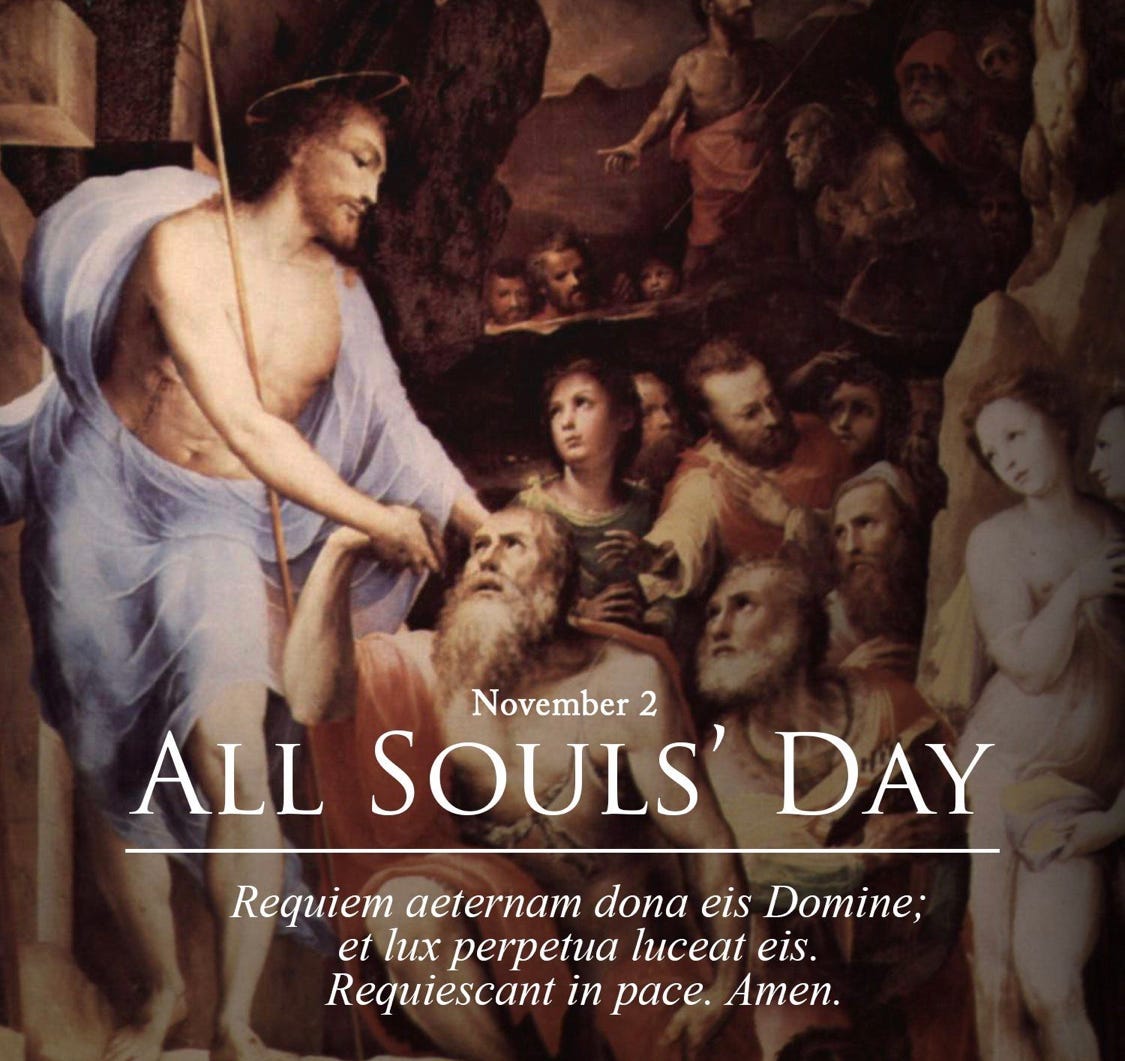“Behold, I tell you a mystery: we shall all indeed rise…in the twinkling of an eye, at the last trumpet. For the trumpet shall sound, and the dead shall rise incorruptible and we shall be changed.” —1 Cor. 15:51-52
“Amen, amen, I say to you, the hour is coming, and now is here, when the dead shall hear the voice of the Son of God, and those who hear shall live.” —Jesus (John 5:25)
Today is All Souls’ Day, a feast to commemorate all the faithful departed.
The practice of praying for the dead is grounded in Scripture. 2 Machabees 12:46 says, “It is therefore a holy and wholesome thought to pray for the dead, that they may be loosed from sins.” Later, in the New Testament, St. Paul the Apostle prays for an apparently deceased man to receive mercy from God (2 Tim. 1:16-18), “The Lord give mercy to the house of Onesiphorus: because he hath often refreshed me, and hath not been ashamed of my chain: But when he was come to Rome, he carefully sought me, and found me. The Lord grant unto him to find mercy of the Lord in that day: and in how many things he ministered unto me at Ephesus, thou very well knowest.”
Many non-Catholics misunderstand prayers for the dead, as they do so many other Catholic doctrines. It is a fact that, once a person dies, he is either saved or not. But since only those who are fully perfected can stand in the presence of God (that theology surfaces in the Old Testament in the purification rites demanded of priests), those souls who still had recently committed minor sins or were attached to earthly things when they died must be purified before going to their eternal reward in heaven. It is that state of purification after death that Catholics called Purgatory (see Matt. 18:34)—and it is for the souls in Purgatory we pray today.
Prayer is very powerful. Revelation 5 talks about the “the prayers of the saints” presented before God’s throne, and James 5:16 says, “The prayer of a righteous man has great power.” And in what better way can prayer be used than in assisting our loved ones who went before us to reach eternal joy in heaven as soon as possible?





Christ was almost assuredly a shortening of the way. A way to break away from the purgatory of the wheel of time.